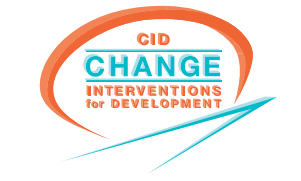Adaptive Leadership.Change agents must change their mindset. Rather than focusing on a single charismatic leader for answers to problems, they should appreciate that adaptive problems require people to take proactive steps to discover solutions through individual and group action. Adaptive problems do not have ready-made solutions and there is no expert knowledge that can be uncovered. Rather, change agents will need to take action, mobilize support, and engage key stakeholders whose lives are affected by this problem. Strategic Communication. Communication that fails to focus on behavior change as a goal results in suboptimal outcomes. New behaviors are adopted by influencing behaviors and attitudes. Development objectives cannot be achieved unless people are willing and able to learn new information, change long-standing attitudes, and adopt new practices. Communication needs to be targeted, strategic, and focused on helping people change both what they believe in and, more importantly, what they do. Negotiation. Conflict is a natural consequence and indicator of progress, development, and change. It is neutral in how stakeholders, individually or collectively, manage their perception of incompatible goals. This will determine whether the conflict increases or decreases the prospect of reaching agreement. Conflict, therefore, can be a positive or a negative influence in reaching collective goals. Political, public, and organizational will is seldom isolated. There are other political ideas, public stakeholders, and organizational entities with wills of their own. When individuals, groups, and organizations recognize that they cannot reach their goals through independent action, these perceived wills collide. Managing conflict is about increasing the chances of positive engagement from misaligned wills, while reducing the risk of hostile interactions, deadlocked positions, and destructive options. The Learning Programs A number of programs have used elements of this framework in their skills enhancement initiatives. These include the learning programs of international development agencies, such as the World Bank, the United Kingdom’s Department for International Development, Germany’s Gesellschaft für Internationale Zusammenarbeit, the United Nations Development Program, and the United Nations Children’s Fund; regional development banks, such as the Asian Development Bank (ADB) and the InterAmerican Development Bank; governments in Asia, Africa, Latin America, and the Middle East; private sector companies in collaboration with development agencies; and governments in various sectors. In 2008, a new course course called “People, Politics and Change: Communication Approaches for Governance Reform” was designed with financial support from the United Kingdom’s Department for International Development. It was delivered by the External Affairs Vice-Presidency of the World Bank in Washington, DC, United States; Cape Town, South Africa; and Manila, Philippines. It reached 92 senior government officials, reform managers, and development practitioners from 21 developing countries between 2008 and 2009. To provide a sustainable institutional mechanism for the course, the former World Bank Institute and the External and Corporate Relations Vice-Presidency entered into a Memorandum of Understanding with the Annenberg Schools of Communication (at the University of Pennsylvania and the University of Southern California) to develop and jointly deliver an annual World Bank– Annenberg Summer Institute on Communication and Governance Reform. The Summer Institute was launched in 2012 and is offered each summer at the University of Southern California.
